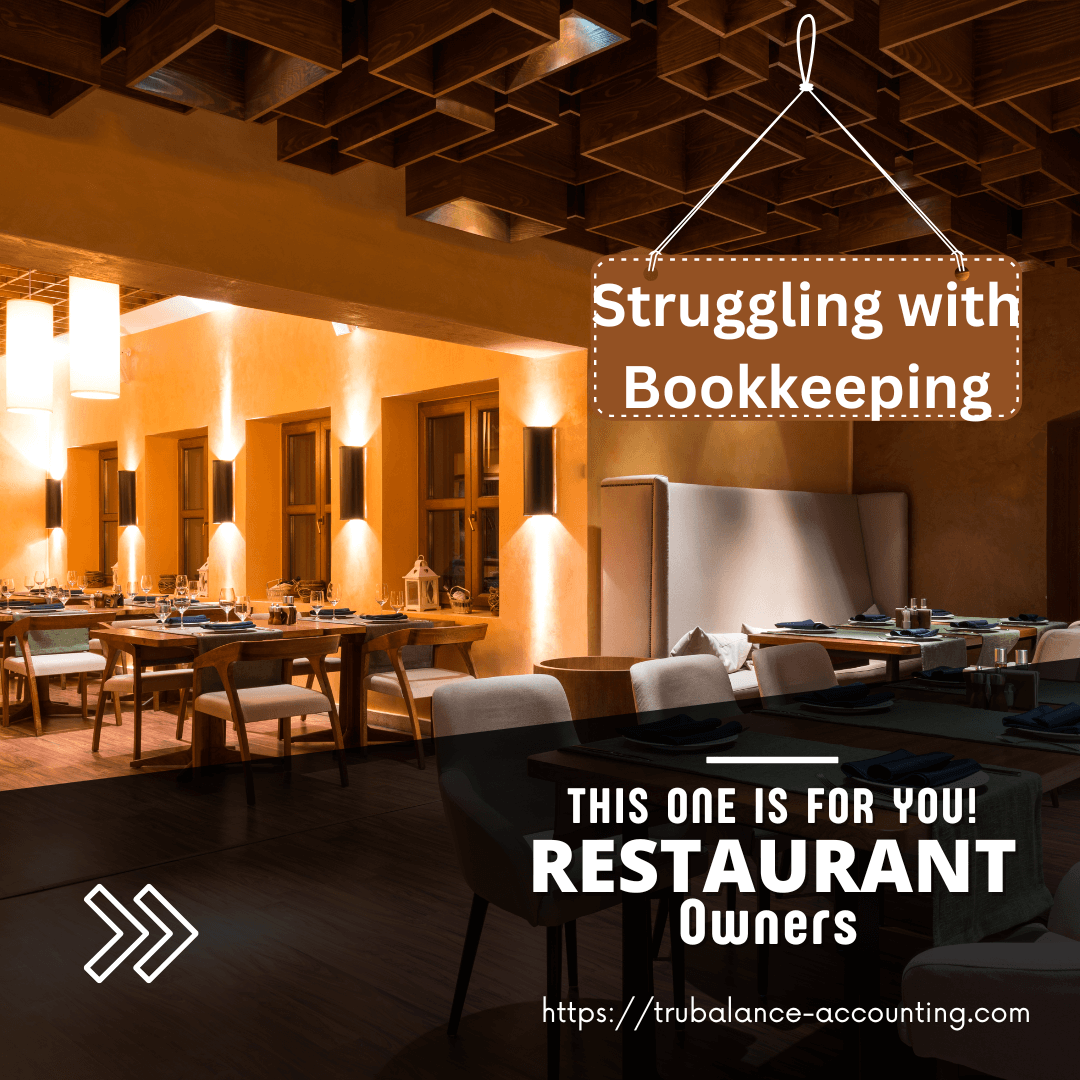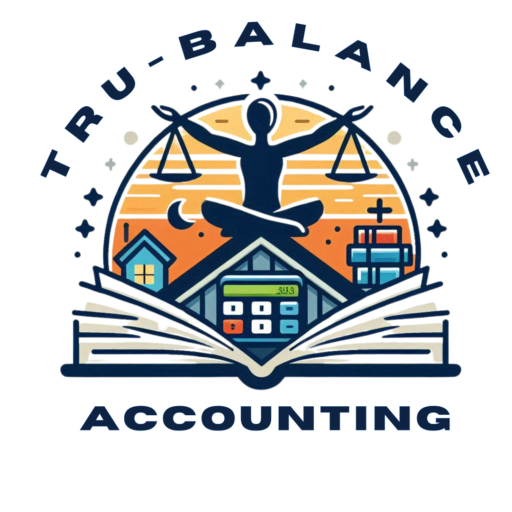Bookkeeping for Restaurant Owners
Running a restaurant can be highly rewarding but challenging, especially when managing the business's finances. Let's discuss bookkeeping for restaurant owners in this article to provide tips. Bookkeeping is crucial to a successful restaurant, but many owners struggle to keep up with the various tasks. From managing cash flow to controlling costs and handling accounts payable, restaurant owners face numerous challenges regarding bookkeeping. In this blog post, we will explore some common pain points in restaurant bookkeeping and provide practical solutions to help alleviate these challenges.
Key Areas of Bookkeeping for Restaurant Owners
Managing Cash Flow
One of the biggest challenges restaurant owners faces in bookkeeping is managing cash flow. Restaurants often have unpredictable revenue streams, making it difficult to accurately forecast cash flow and plan for expenses. This can lead to cash flow shortages, which can in turn result in missed payments to vendors or employees, and ultimately impact on the overall financial health of the business.
To address this challenge, restaurant owners should focus on creating a cash flow forecast that considers all sources of revenue and expenses. By regularly updating this forecast and monitoring actual cash flow against projections, owners can better anticipate any potential cash flow shortages and take proactive steps to address them. Additionally, implementing a robust cash management system, such as strict cash handling policies and regular cash reconciliations, can help prevent cash flow issues from arising in the first place.

Controlling Costs
Another common pain in restaurant bookkeeping is controlling
costs. Restaurants have high overhead costs, including labor, food, and rent,
which can quickly eat into profit margins if not effectively managed. Without
proper cost control measures in place, restaurant owners may find themselves struggling to make ends meet and experiencing financial difficulties.
To alleviate this challenge, restaurant owners should closely monitor and analyze their costs on a regular basis. This can involve tracking expenses, such as food and beverage costs, labor costs, and overhead expenses, and comparing them against sales to identify any areas of inefficiency. By conducting regular cost analyses and implementing cost-saving
measures, such as negotiating better vendor contracts or streamlining
operations, owners can better control costs and improve profitability.
Streamlining Invoice Management
Restaurant owners also often struggle with managing invoices efficiently. With multiple vendors and suppliers to pay, keeping track of invoices and ensuring timely payments can be a complex and time-consuming process. This can lead to missed payments, late fees, and strained vendor relationships, ultimately impacting the restaurant's bottom line.
To address this challenge, restaurant owners should consider implementing an automated invoice management system. This can help streamline the process of receiving, reviewing, and paying invoices, saving time and reducing the risk of errors. Additionally, setting up regular payment schedules and reminders can help ensure that invoices are paid on time, thereby avoiding late fees and maintaining positive vendor relationships.
Handling Accounts Payable
Managing accounts payable is another point of pain for restaurant owners when it comes to bookkeeping. Restaurants often have numerous
vendors and suppliers to pay, leading to a high volume of accounts payable
transactions that need to be tracked and managed. Without a proper system in place, owners may struggle to keep up with payments, leading to missed or late payments and potential cash flow issues.
To alleviate this challenge, restaurant owners should consider implementing an accounts payable automation system. This can help streamline the process of managing and tracking accounts payable transactions,
making it easier to stay on top of payments and maintain good relationships
with vendors. Additionally, setting up a strict accounts payable policy, such
as requiring approvals for all payments and conducting regular audits of
accounts payable records, can help prevent errors and fraud.

We help Restaurant Owners with their bookkeeping so
they can get back to running their business!
Efficient Inventory Management
Inventory management is another key aspect of restaurant bookkeeping that can pose challenges for owners. Restaurants have perishable items that need to be carefully managed to minimize waste and optimize profitability. Without an efficient inventory management system in place, owners may struggle to accurately track inventory levels, leading to overstocking or understocking of items, which can impact financial performance.
To address this challenge, restaurant owners should consider implementing an inventory management system that tracks inventory levels in real-time and provides insights into purchasing patterns and consumption rates. By regularly monitoring inventory levels and conducting regular inventory audits, owners can better manage their inventory and reduce waste. Additionally, implementing inventory controls, such as setting par levels and conducting regular inventory counts, can help prevent stockouts and optimize inventory levels.

Efficient Inventory Management
Inventory management is another key aspect of restaurant
bookkeeping that can pose challenges for owners. Restaurants have perishable items that need to be carefully managed to minimize waste and optimize profitability. Without an efficient inventory management system in place, owners may struggle to accurately track inventory levels, leading to
overstocking or understocking of items, which can impact financial performance.
To address this challenge, restaurant owners should consider implementing an inventory management system that tracks inventory levels in real-time and provides insights into purchasing patterns and consumption rates.
By regularly monitoring inventory levels and conducting regular inventory
audits, owners can better manage their inventory and reduce waste. Additionally, implementing inventory controls, such as setting par levels and
conducting regular inventory counts, can help prevent stockouts and optimize inventory levels.
Effective Account Reconciliation
Finally, account reconciliation is another pain point for restaurant owners when it comes to bookkeeping. Reconciling bank statements, credit card statements, and accounts receivable and payable records can be a time-consuming and error-prone process, leading to discrepancies and inaccuracies in financial reports. Without proper account reconciliation procedures, owners may struggle to have a clear picture of their financial position, leading to potential mismanagement of funds.
To alleviate this challenge, restaurant owners should implement a strict account reconciliation process that includes regular reconciliations of all financial accounts, such as bank and credit card statements. By conducting regular reconciliations and investigating any discrepancies, owners can ensure the accuracy of their financial records and identify any potential issues before they become major problems. Additionally, implementing segregation of duties and conducting regular internal audits can help prevent errors and fraud in the reconciliation process.
Key Take Away
Bookkeeping is critical to running a successful restaurant business. Restaurant owners can improve financial performance and profitability by addressing the challenges of managing cash flow, controlling costs, streamlining invoice management, handling accounts payable, efficient inventory management, and effective account reconciliation. By implementing practical solutions and best practices in bookkeeping, owners can better manage their finances and position their restaurants for long-term success.
Join our growing Restaurant Bookkeeping Client List
Ensure your accounting success with Tru-Balance Accounting standing with your business!

